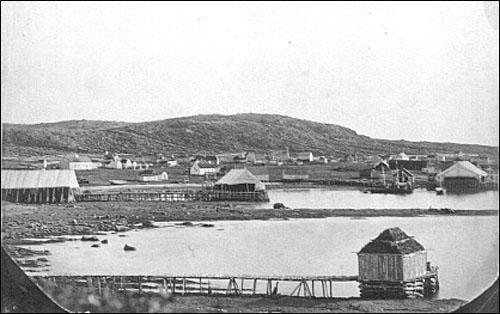The "Entente Cordiale", 1904
In the early 20th century, after a period of some tension between the two countries, Britain and France agreed to settle a number of outstanding colonial disputes. On April 8, 1904, four agreements were concluded in London, which established the Anglo-French Entente, or entente cordiale. An entente, it should be noted, is an “understanding” – not a treaty of alliance. These agreements were:
1. A Declaration respecting Egypt and Morocco.
2. A Convention respecting Newfoundland and West and Central Africa.
3. An Exchange of Notes agreeing to the Mutual Appointment of Consuls at St. John's, NL, and at St. Pierre.
4. A Declaration concerning Siam, Madagascar and the New Hebrides.
Of these, the Declaration respecting Egypt and Morocco is generally agreed to be the most important: France recognized Britain's position in Egypt and allowed it a free hand there, while Britain allowed France a free hand in Morocco. However, the often-overlooked Newfoundland convention was a vital part of the overall package.
France agreed to renounce the fishing privileges granted by article 13 of the Treaty of Utrecht (1713), in return for financial compensation to be paid by the British government to French citizens who would be adversely affected, and in return for territorial concessions in West and Central Africa. France retained the right to fish in season on the former French Shore “on a footing of equality with British subjects,” but could not, as formerly, build fishing establishments on land.

Courtesy of the National Archives of Canada, PA-188218.
The convention did not achieve all that the Newfoundland government would have liked, but it did close down what remained of the French fishery on the French Shore, and eliminated any legal uncertainty about the security of land, mineral and other such grants there. It also ensured that Newfoundland fishery rules and regulations applied on the former French Shore, which had not been the case in the past.
The convention was welcomed by Newfoundlanders, and Sir Robert Bond, the premier, introduced it to the House of Assembly in an enthusiastic speech. A long-standing grievance, a cause of serious tensions between the colony and the imperial government, had finally been removed.




